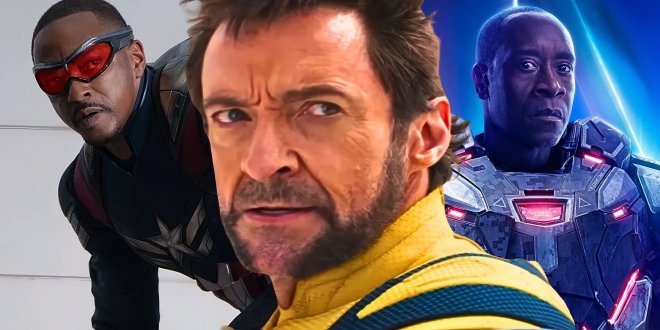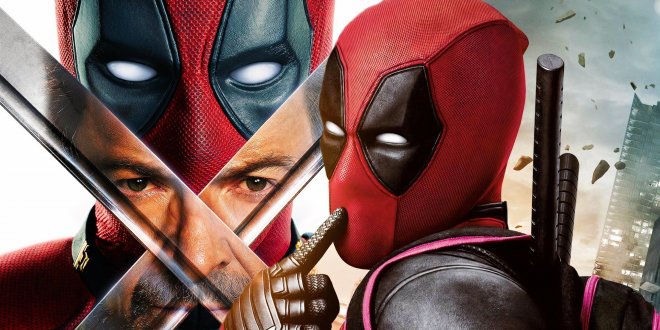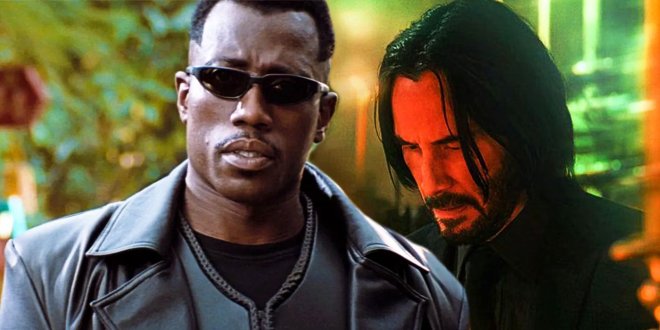10 Harsh Realities Of Rewatching The MCU"s Highest-Rated TV Shows
Summary
According to Rottentomatoes.com, the ten highest-rated Marvel shows are X-Men '97, Ms. Marvel, Agents of S.H.I.E.L.D., WandaVision, Daredevil, Hawkeye, Legion, What If...?, Loki, and Luke Cage. While this diverse roster of series each has their own strengths and weaknesses, going back to them today can reveal many problems stemming from Marvel's need to maintain a cohesive narrative. There's no denying that a second-watch through of any highly-rated Marvel show comes with its own issues.
10 Marvel Studios Has Waited Too Long To Get Into Animation The success of X-Men '97 proved as much![]() Long before they were ever known for their crossover movies, Marvel was in the business of animation. The universe of animated shows sharing continuity with X-Men: The Animated Series created a sort of proto-MCU. complete with crossover events and references tying everything together. For a long time, these shows were the basis of many casual viewers' relationship with Marvel, with even the first Sam Raimi Spider-Man film yet to hit theaters.
Long before they were ever known for their crossover movies, Marvel was in the business of animation. The universe of animated shows sharing continuity with X-Men: The Animated Series created a sort of proto-MCU. complete with crossover events and references tying everything together. For a long time, these shows were the basis of many casual viewers' relationship with Marvel, with even the first Sam Raimi Spider-Man film yet to hit theaters.
This makes it all the more puzzling why Marvel waited so long to revisit these properties, with the unprecedented success of X-Men '97 standing at the top of the heap when it comes to ranking Marvel's modern shows. Even without bringing back the 90s animated continuity, the MCU waited far too long to get into traditional animation. The cell-shaded 3-D artstyle of What If...? was a modest start, but couldn't hold a candle to the serialized supremacy of X-Men '97's daring episodes.
9 Marvel's Netflix Shows Should Have Been Made Canon Way Sooner The MCU sat on these properties for no clear reason![]() One of the biggest successes of any Marvel TV show is Charlie Cox's portrayal of Daredevil in the eponymous Netflix series, presenting a darker, grittier take on the MCU. While the show made occasional passing references to MCU events like the invasion of New York, the Marvel banner under Disney's employ took far too long to respond in kind. It was only in 2021's Hawkeye that the critically-acclaimed Netflix shows first got recognition, with the return of Vincent D'Onofrio's Kingpin a full six years after the debut of Daredevil.
One of the biggest successes of any Marvel TV show is Charlie Cox's portrayal of Daredevil in the eponymous Netflix series, presenting a darker, grittier take on the MCU. While the show made occasional passing references to MCU events like the invasion of New York, the Marvel banner under Disney's employ took far too long to respond in kind. It was only in 2021's Hawkeye that the critically-acclaimed Netflix shows first got recognition, with the return of Vincent D'Onofrio's Kingpin a full six years after the debut of Daredevil.
Even after re-using the same performances, the MCU took far too long to hard-confirm the canon status of the Netflix Defenders, only doing so as recently as 2024's Echo. When looking back through Marvel's TV catalog, one can't help but feel like this was a missed opportunity. After all, both Daredevil and Luke Cage are counted among two of the ten best-received Marvel TV shows ever on Rottentomatoes.com.
8 The MCU's New Release Plan May Mean Fewer Sleeper Hits Marvel might not be taking chances on lesser-known properties![]() Compared to the gamble of big-budget superhero movies, TV represents a place where Marvel comic adaptations are given more room to experiment with more obscure premises and characters. Unfortunately, it seems this may be an era that is soon coming to pass with Marvel's new streaming plans, focusing mostly on more popular or well-known heroes instead. Looking back through the list of Marvel's biggest critical successes, this may be an ominous sign.
Compared to the gamble of big-budget superhero movies, TV represents a place where Marvel comic adaptations are given more room to experiment with more obscure premises and characters. Unfortunately, it seems this may be an era that is soon coming to pass with Marvel's new streaming plans, focusing mostly on more popular or well-known heroes instead. Looking back through the list of Marvel's biggest critical successes, this may be an ominous sign.
Characters like Ms. Marvel likely wouldn't have been considered under this new strategy, and concepts like WandaVision will likely be deemed too strange to justify. Yet without Marvel taking a chance on these more out-there ideas for shows, two of its best-performing series would never have gotten off the ground. The MCU needs to be careful with limiting its television offerings to only characters audiences are already familiar with, lest they miss out on some great opportunities.
7 Agents Of S.H.I.E.L.D. Remains An Alternate Reality The ABC series was sadly never given the Netflix treatment![]() After the Netflix Defenders were officially adopted into the Marvel Cinematic Universe canon, fans of the long-running Agents of S.H.I.E.L.D. series were hopeful that the original MCU spin-off show would get the same treatment. Sadly, the book Marvel Studios The Marvel Cinematic Universe: An Official Timeline has since confirmed Agents of S.H.I.E.L.D. as being technically canon in the MCU, but only in the sense that it exists in a parallel timeline. This means that Agent Coulson's revival never happens in the Sacred Timeline most Marvel projects take place in.
After the Netflix Defenders were officially adopted into the Marvel Cinematic Universe canon, fans of the long-running Agents of S.H.I.E.L.D. series were hopeful that the original MCU spin-off show would get the same treatment. Sadly, the book Marvel Studios The Marvel Cinematic Universe: An Official Timeline has since confirmed Agents of S.H.I.E.L.D. as being technically canon in the MCU, but only in the sense that it exists in a parallel timeline. This means that Agent Coulson's revival never happens in the Sacred Timeline most Marvel projects take place in.
It's sad enough that this decision locks out the excellent cast of Agents of S.H.I.E.L.D. from appearing in a Marvel Cinematic Universe movie any time soon. But in relegating the entire series to an elseworlds alternate universe, the MCU also loses out on the introduction of fan favorite Marvel Comics characters like Ghost Rider. It's hard to re-watch Agents of S.H.I.E.L.D. knowing that the events therein ultimately don't matter to the "real" story of the MCU.
6 Many MCU Shows Are A Product Of Their Time Remembering what's happening at the start of any series is an increasingly difficult task![]() It's no secret that the Marvel Cinematic Universe thrives on continuity, with each movie playing off the next in an intricate web of interconnectivity. Of course, the TV shows are often held to the same standard, which works well at the moment they're released. However, upon a re-watch, it can be difficult to remember just when and where in the MCU a given series takes place in.
It's no secret that the Marvel Cinematic Universe thrives on continuity, with each movie playing off the next in an intricate web of interconnectivity. Of course, the TV shows are often held to the same standard, which works well at the moment they're released. However, upon a re-watch, it can be difficult to remember just when and where in the MCU a given series takes place in.
The addition of Disney+ shows exponentially increased the total number of MCU projects, creating what some fans started wearily regarding as "homework" in order to stay up-to-date with what was going on. Even among the MCU's greatest series, there's a level of whiplash present on a re-watch stemming from the need to quickly remember what had and hadn't yet happened by the first episode. In this way, the streaming series have actually been more limited by the films than the other way around.
5 Legion Is Tragically Absent From Most Fans' Radar An oft-forgotten X-Men series deserves more recognition![]() Among the list of Marvel's ten most critically favored TV shows, one series stands out by being far less recognizable. First released in 2017, Legion was a series set in an alternate version of the Fox X-Men timeline. The series follows David Haller, a young child haunted by visions that goes on to learn his condition isn't something to be feared or managed, but a powerful gift shared by others. David enlists the help of a group of specialists with similar abilities to help him unravel the mysteries of his life.
Among the list of Marvel's ten most critically favored TV shows, one series stands out by being far less recognizable. First released in 2017, Legion was a series set in an alternate version of the Fox X-Men timeline. The series follows David Haller, a young child haunted by visions that goes on to learn his condition isn't something to be feared or managed, but a powerful gift shared by others. David enlists the help of a group of specialists with similar abilities to help him unravel the mysteries of his life.
Legion was remarkable for being a fantastic slow-burn mystery show that outgrew its comic book roots. Ranked as the seventh-best Marvel TV series ever by its cumulative score on Rotten Tomatoes, it's a shame that Legion was never able to harness the same popularity as the MCU shows, the Netflix Defenders, or even ABC's Agents of S.H.I.E.L.D. It's heartbreaking to re-visit the series knowing that the mutant adventures of David and company would go on to languish in obscurity.
4 Marvel's Best TV Shows Represent A Huge Time Commitment The comic series can't seem to stay away from lengthy episodes![]() For all the strengths the Marvel Cinematic Universe has, brevity has never been one of their specialties. Each episode of most MCU series could almost be considered a feature film in its own right, and the runtimes of shows like Netflix's Daredevil or Legion aren't far behind. This presents a massive time commitment up front to anyone who dares to undertake the Herculian task of re-watching all ten of Marvel's top-ranked TV shows.
For all the strengths the Marvel Cinematic Universe has, brevity has never been one of their specialties. Each episode of most MCU series could almost be considered a feature film in its own right, and the runtimes of shows like Netflix's Daredevil or Legion aren't far behind. This presents a massive time commitment up front to anyone who dares to undertake the Herculian task of re-watching all ten of Marvel's top-ranked TV shows.
Granted, most of Marvel's highest-rated series cap off at a modest season or two, with less than ten episodes apiece. Agents of S.H.I.E.L.D. remains an alarming outlier in this regard, spanning 7 seasons over as many years of production. In any case, the sheer time requirements necessary to enjoy any Marvel series more than once makes doing so a rare luxury.
3 Marvel Needed Showrunners From The Beginning Some of Marvel's best shows still lack a creative cohesive vision![]() Early on the Marvel Cinematic Universe's first brushes with serialized TV shows, the franchise was insistent on not needing showrunners for its projects. Titles like WandaVision and The Falcon and the Winter Soldier controversially launched without the presence of an overarching showrunner, standard practice in most TV series. Essentially the equivalent of a film's director for a TV series, a showrunner is in charge of maintaining a cohesive creative vision for a given show across its entire run.
Early on the Marvel Cinematic Universe's first brushes with serialized TV shows, the franchise was insistent on not needing showrunners for its projects. Titles like WandaVision and The Falcon and the Winter Soldier controversially launched without the presence of an overarching showrunner, standard practice in most TV series. Essentially the equivalent of a film's director for a TV series, a showrunner is in charge of maintaining a cohesive creative vision for a given show across its entire run.
Many of the best TV series in under Marvel's name did have showrunners, proving the importance of the role to MCU leadership. Even the few series that don't have showrunners that are otherwise well-received, like WandaVision, clearly suffer for it, full of meandering plot threads that appear and vanish at a moment's notice. Luckily, the MCU's new TV strategy includes the use of showrunners, rather than relying on studio-mandated decisions that wax and wane.
2 Too Many Marvel Shows Are Limited Series It's hard not to wonder if many Marvel series couldn't have just been movies![]() On the other hand, many of Marvel's series are actually ultimately hurt by their limited runs. Hawkeye, Ms. Marvel, and WandaVision have all capped off after a single season, with no plans for a follow-up series in sight. This puts some of Marvel's most interesting stories in an awkward place as a piece of media, too long to be a movie but never feeling like a favorite TV show that had a distinct run.
On the other hand, many of Marvel's series are actually ultimately hurt by their limited runs. Hawkeye, Ms. Marvel, and WandaVision have all capped off after a single season, with no plans for a follow-up series in sight. This puts some of Marvel's most interesting stories in an awkward place as a piece of media, too long to be a movie but never feeling like a favorite TV show that had a distinct run.
In many cases, Marvel's TV shows could've easily been edited down into feature films. Throughout some of Marvel's best streaming offerings, there are plenty of elements of filler that seemingly exists only to pad out the season, allowing it to reach the stretch goal of as little as five episodes, as is the case with Loki. It's harder to get excited about re-visiting any Marvel TV show season with the knowledge that the series won't be built upon any time soon.
1 Marvel's Best Shows Have Nothing To Do With Star Power Movie success and TV success have very different parameters![]() The Marvel Cinematic Universe has a fascinating relationship with star power. Many times, the films aren't content to rely on well-known actors to carry them, with Marvel taking big risks early on in casting relative unknowns like Chris Hemsworth or Tom Holland for their biggest roles. That being said, in more recent years, the MCU has become fond of a safer approach, comfortably casting high-profile stars for their latest tentpole movies.
The Marvel Cinematic Universe has a fascinating relationship with star power. Many times, the films aren't content to rely on well-known actors to carry them, with Marvel taking big risks early on in casting relative unknowns like Chris Hemsworth or Tom Holland for their biggest roles. That being said, in more recent years, the MCU has become fond of a safer approach, comfortably casting high-profile stars for their latest tentpole movies.
As far as TV goes, it's important to note that whether or not a well-known actor is the center of a given series is no indication of its quality. While names like Elizabeth Olsen and Jeremy Renner carry some weight, it's more common for the show to elevate the status of its lead rather than the other way around, as was the case for Charlie Cox and Iman Vellani. It's a hard reality to face that the presence of the MCU's most beloved faces ultimately has no bearing on the series' TV success.
Upcoming Marvel Movies Release Date Deadpool & Wolverine July 26, 2024 Captain America: Brave New World February 14, 2025 Thunderbolts* May 2, 2025 The Fantastic Four July 25, 2025 Blade November 7, 2025 Avengers: The Kang Dynasty May 1, 2026 Avengers: Secret Wars May 7, 2027
[圖擷取自網路,如有疑問請私訊]
- The Marvel Cinematic Universe's highly-rated TV shows offer engaging glimpses into the comic universe, but have their limitations.
- Marvel's delayed foray into animation with X-Men '97's success hints at missed opportunities.
- The MCU's new focus on popular heroes may limit creativity, but taking chances on lesser-known characters can lead to success.
According to Rottentomatoes.com, the ten highest-rated Marvel shows are X-Men '97, Ms. Marvel, Agents of S.H.I.E.L.D., WandaVision, Daredevil, Hawkeye, Legion, What If...?, Loki, and Luke Cage. While this diverse roster of series each has their own strengths and weaknesses, going back to them today can reveal many problems stemming from Marvel's need to maintain a cohesive narrative. There's no denying that a second-watch through of any highly-rated Marvel show comes with its own issues.
10 Marvel Studios Has Waited Too Long To Get Into Animation The success of X-Men '97 proved as much
 Long before they were ever known for their crossover movies, Marvel was in the business of animation. The universe of animated shows sharing continuity with X-Men: The Animated Series created a sort of proto-MCU. complete with crossover events and references tying everything together. For a long time, these shows were the basis of many casual viewers' relationship with Marvel, with even the first Sam Raimi Spider-Man film yet to hit theaters.
Long before they were ever known for their crossover movies, Marvel was in the business of animation. The universe of animated shows sharing continuity with X-Men: The Animated Series created a sort of proto-MCU. complete with crossover events and references tying everything together. For a long time, these shows were the basis of many casual viewers' relationship with Marvel, with even the first Sam Raimi Spider-Man film yet to hit theaters. This makes it all the more puzzling why Marvel waited so long to revisit these properties, with the unprecedented success of X-Men '97 standing at the top of the heap when it comes to ranking Marvel's modern shows. Even without bringing back the 90s animated continuity, the MCU waited far too long to get into traditional animation. The cell-shaded 3-D artstyle of What If...? was a modest start, but couldn't hold a candle to the serialized supremacy of X-Men '97's daring episodes.
9 Marvel's Netflix Shows Should Have Been Made Canon Way Sooner The MCU sat on these properties for no clear reason
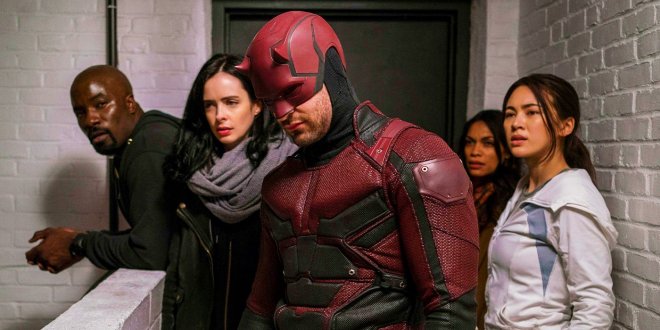 One of the biggest successes of any Marvel TV show is Charlie Cox's portrayal of Daredevil in the eponymous Netflix series, presenting a darker, grittier take on the MCU. While the show made occasional passing references to MCU events like the invasion of New York, the Marvel banner under Disney's employ took far too long to respond in kind. It was only in 2021's Hawkeye that the critically-acclaimed Netflix shows first got recognition, with the return of Vincent D'Onofrio's Kingpin a full six years after the debut of Daredevil.
One of the biggest successes of any Marvel TV show is Charlie Cox's portrayal of Daredevil in the eponymous Netflix series, presenting a darker, grittier take on the MCU. While the show made occasional passing references to MCU events like the invasion of New York, the Marvel banner under Disney's employ took far too long to respond in kind. It was only in 2021's Hawkeye that the critically-acclaimed Netflix shows first got recognition, with the return of Vincent D'Onofrio's Kingpin a full six years after the debut of Daredevil. Even after re-using the same performances, the MCU took far too long to hard-confirm the canon status of the Netflix Defenders, only doing so as recently as 2024's Echo. When looking back through Marvel's TV catalog, one can't help but feel like this was a missed opportunity. After all, both Daredevil and Luke Cage are counted among two of the ten best-received Marvel TV shows ever on Rottentomatoes.com.
8 The MCU's New Release Plan May Mean Fewer Sleeper Hits Marvel might not be taking chances on lesser-known properties
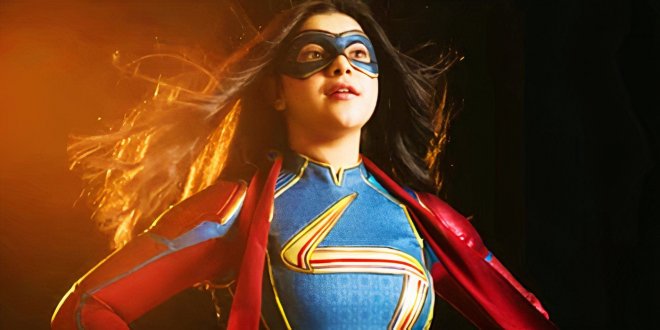 Compared to the gamble of big-budget superhero movies, TV represents a place where Marvel comic adaptations are given more room to experiment with more obscure premises and characters. Unfortunately, it seems this may be an era that is soon coming to pass with Marvel's new streaming plans, focusing mostly on more popular or well-known heroes instead. Looking back through the list of Marvel's biggest critical successes, this may be an ominous sign.
Compared to the gamble of big-budget superhero movies, TV represents a place where Marvel comic adaptations are given more room to experiment with more obscure premises and characters. Unfortunately, it seems this may be an era that is soon coming to pass with Marvel's new streaming plans, focusing mostly on more popular or well-known heroes instead. Looking back through the list of Marvel's biggest critical successes, this may be an ominous sign. Characters like Ms. Marvel likely wouldn't have been considered under this new strategy, and concepts like WandaVision will likely be deemed too strange to justify. Yet without Marvel taking a chance on these more out-there ideas for shows, two of its best-performing series would never have gotten off the ground. The MCU needs to be careful with limiting its television offerings to only characters audiences are already familiar with, lest they miss out on some great opportunities.
7 Agents Of S.H.I.E.L.D. Remains An Alternate Reality The ABC series was sadly never given the Netflix treatment
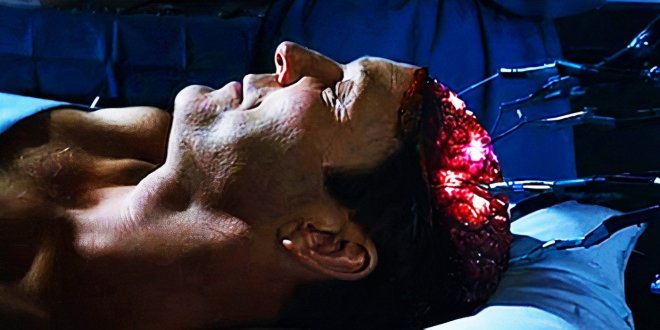 After the Netflix Defenders were officially adopted into the Marvel Cinematic Universe canon, fans of the long-running Agents of S.H.I.E.L.D. series were hopeful that the original MCU spin-off show would get the same treatment. Sadly, the book Marvel Studios The Marvel Cinematic Universe: An Official Timeline has since confirmed Agents of S.H.I.E.L.D. as being technically canon in the MCU, but only in the sense that it exists in a parallel timeline. This means that Agent Coulson's revival never happens in the Sacred Timeline most Marvel projects take place in.
After the Netflix Defenders were officially adopted into the Marvel Cinematic Universe canon, fans of the long-running Agents of S.H.I.E.L.D. series were hopeful that the original MCU spin-off show would get the same treatment. Sadly, the book Marvel Studios The Marvel Cinematic Universe: An Official Timeline has since confirmed Agents of S.H.I.E.L.D. as being technically canon in the MCU, but only in the sense that it exists in a parallel timeline. This means that Agent Coulson's revival never happens in the Sacred Timeline most Marvel projects take place in. It's sad enough that this decision locks out the excellent cast of Agents of S.H.I.E.L.D. from appearing in a Marvel Cinematic Universe movie any time soon. But in relegating the entire series to an elseworlds alternate universe, the MCU also loses out on the introduction of fan favorite Marvel Comics characters like Ghost Rider. It's hard to re-watch Agents of S.H.I.E.L.D. knowing that the events therein ultimately don't matter to the "real" story of the MCU.
6 Many MCU Shows Are A Product Of Their Time Remembering what's happening at the start of any series is an increasingly difficult task
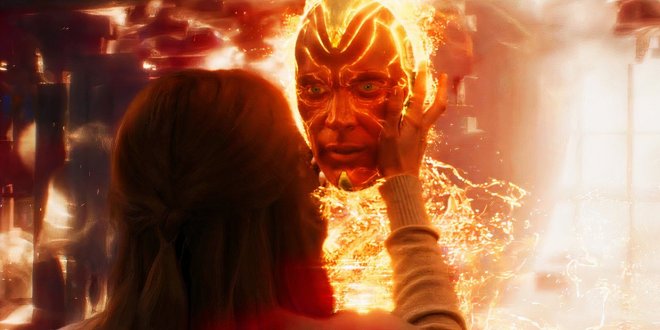 It's no secret that the Marvel Cinematic Universe thrives on continuity, with each movie playing off the next in an intricate web of interconnectivity. Of course, the TV shows are often held to the same standard, which works well at the moment they're released. However, upon a re-watch, it can be difficult to remember just when and where in the MCU a given series takes place in.
It's no secret that the Marvel Cinematic Universe thrives on continuity, with each movie playing off the next in an intricate web of interconnectivity. Of course, the TV shows are often held to the same standard, which works well at the moment they're released. However, upon a re-watch, it can be difficult to remember just when and where in the MCU a given series takes place in. The addition of Disney+ shows exponentially increased the total number of MCU projects, creating what some fans started wearily regarding as "homework" in order to stay up-to-date with what was going on. Even among the MCU's greatest series, there's a level of whiplash present on a re-watch stemming from the need to quickly remember what had and hadn't yet happened by the first episode. In this way, the streaming series have actually been more limited by the films than the other way around.
5 Legion Is Tragically Absent From Most Fans' Radar An oft-forgotten X-Men series deserves more recognition
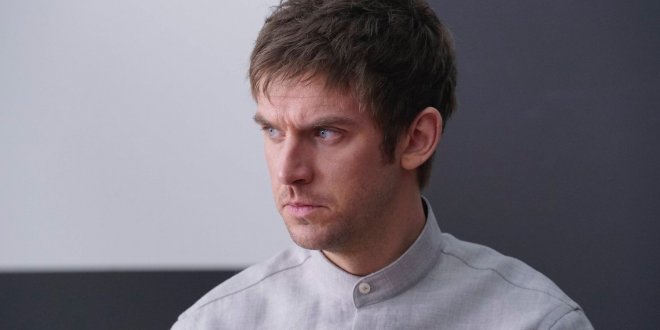 Among the list of Marvel's ten most critically favored TV shows, one series stands out by being far less recognizable. First released in 2017, Legion was a series set in an alternate version of the Fox X-Men timeline. The series follows David Haller, a young child haunted by visions that goes on to learn his condition isn't something to be feared or managed, but a powerful gift shared by others. David enlists the help of a group of specialists with similar abilities to help him unravel the mysteries of his life.
Among the list of Marvel's ten most critically favored TV shows, one series stands out by being far less recognizable. First released in 2017, Legion was a series set in an alternate version of the Fox X-Men timeline. The series follows David Haller, a young child haunted by visions that goes on to learn his condition isn't something to be feared or managed, but a powerful gift shared by others. David enlists the help of a group of specialists with similar abilities to help him unravel the mysteries of his life. Legion was remarkable for being a fantastic slow-burn mystery show that outgrew its comic book roots. Ranked as the seventh-best Marvel TV series ever by its cumulative score on Rotten Tomatoes, it's a shame that Legion was never able to harness the same popularity as the MCU shows, the Netflix Defenders, or even ABC's Agents of S.H.I.E.L.D. It's heartbreaking to re-visit the series knowing that the mutant adventures of David and company would go on to languish in obscurity.
4 Marvel's Best TV Shows Represent A Huge Time Commitment The comic series can't seem to stay away from lengthy episodes
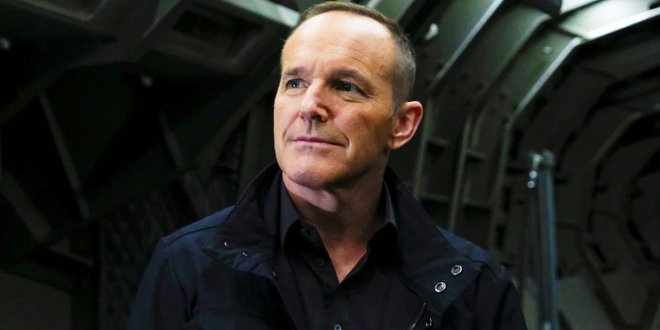 For all the strengths the Marvel Cinematic Universe has, brevity has never been one of their specialties. Each episode of most MCU series could almost be considered a feature film in its own right, and the runtimes of shows like Netflix's Daredevil or Legion aren't far behind. This presents a massive time commitment up front to anyone who dares to undertake the Herculian task of re-watching all ten of Marvel's top-ranked TV shows.
For all the strengths the Marvel Cinematic Universe has, brevity has never been one of their specialties. Each episode of most MCU series could almost be considered a feature film in its own right, and the runtimes of shows like Netflix's Daredevil or Legion aren't far behind. This presents a massive time commitment up front to anyone who dares to undertake the Herculian task of re-watching all ten of Marvel's top-ranked TV shows. Granted, most of Marvel's highest-rated series cap off at a modest season or two, with less than ten episodes apiece. Agents of S.H.I.E.L.D. remains an alarming outlier in this regard, spanning 7 seasons over as many years of production. In any case, the sheer time requirements necessary to enjoy any Marvel series more than once makes doing so a rare luxury.
3 Marvel Needed Showrunners From The Beginning Some of Marvel's best shows still lack a creative cohesive vision
 Early on the Marvel Cinematic Universe's first brushes with serialized TV shows, the franchise was insistent on not needing showrunners for its projects. Titles like WandaVision and The Falcon and the Winter Soldier controversially launched without the presence of an overarching showrunner, standard practice in most TV series. Essentially the equivalent of a film's director for a TV series, a showrunner is in charge of maintaining a cohesive creative vision for a given show across its entire run.
Early on the Marvel Cinematic Universe's first brushes with serialized TV shows, the franchise was insistent on not needing showrunners for its projects. Titles like WandaVision and The Falcon and the Winter Soldier controversially launched without the presence of an overarching showrunner, standard practice in most TV series. Essentially the equivalent of a film's director for a TV series, a showrunner is in charge of maintaining a cohesive creative vision for a given show across its entire run. Many of the best TV series in under Marvel's name did have showrunners, proving the importance of the role to MCU leadership. Even the few series that don't have showrunners that are otherwise well-received, like WandaVision, clearly suffer for it, full of meandering plot threads that appear and vanish at a moment's notice. Luckily, the MCU's new TV strategy includes the use of showrunners, rather than relying on studio-mandated decisions that wax and wane.
2 Too Many Marvel Shows Are Limited Series It's hard not to wonder if many Marvel series couldn't have just been movies
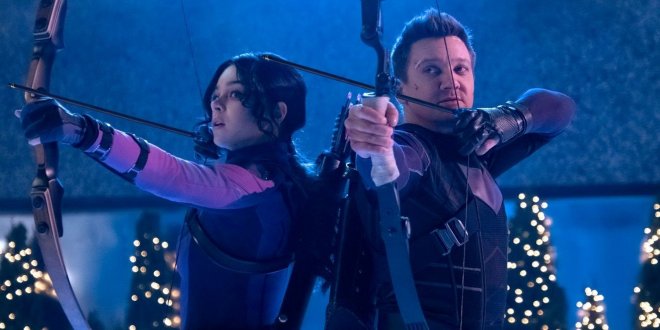 On the other hand, many of Marvel's series are actually ultimately hurt by their limited runs. Hawkeye, Ms. Marvel, and WandaVision have all capped off after a single season, with no plans for a follow-up series in sight. This puts some of Marvel's most interesting stories in an awkward place as a piece of media, too long to be a movie but never feeling like a favorite TV show that had a distinct run.
On the other hand, many of Marvel's series are actually ultimately hurt by their limited runs. Hawkeye, Ms. Marvel, and WandaVision have all capped off after a single season, with no plans for a follow-up series in sight. This puts some of Marvel's most interesting stories in an awkward place as a piece of media, too long to be a movie but never feeling like a favorite TV show that had a distinct run. In many cases, Marvel's TV shows could've easily been edited down into feature films. Throughout some of Marvel's best streaming offerings, there are plenty of elements of filler that seemingly exists only to pad out the season, allowing it to reach the stretch goal of as little as five episodes, as is the case with Loki. It's harder to get excited about re-visiting any Marvel TV show season with the knowledge that the series won't be built upon any time soon.
1 Marvel's Best Shows Have Nothing To Do With Star Power Movie success and TV success have very different parameters
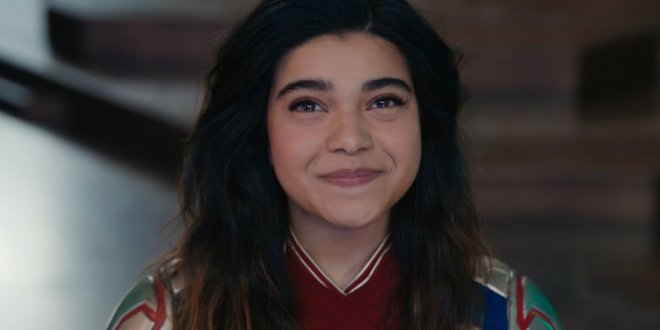 The Marvel Cinematic Universe has a fascinating relationship with star power. Many times, the films aren't content to rely on well-known actors to carry them, with Marvel taking big risks early on in casting relative unknowns like Chris Hemsworth or Tom Holland for their biggest roles. That being said, in more recent years, the MCU has become fond of a safer approach, comfortably casting high-profile stars for their latest tentpole movies.
The Marvel Cinematic Universe has a fascinating relationship with star power. Many times, the films aren't content to rely on well-known actors to carry them, with Marvel taking big risks early on in casting relative unknowns like Chris Hemsworth or Tom Holland for their biggest roles. That being said, in more recent years, the MCU has become fond of a safer approach, comfortably casting high-profile stars for their latest tentpole movies. As far as TV goes, it's important to note that whether or not a well-known actor is the center of a given series is no indication of its quality. While names like Elizabeth Olsen and Jeremy Renner carry some weight, it's more common for the show to elevate the status of its lead rather than the other way around, as was the case for Charlie Cox and Iman Vellani. It's a hard reality to face that the presence of the MCU's most beloved faces ultimately has no bearing on the series' TV success.
Upcoming Marvel Movies Release Date Deadpool & Wolverine July 26, 2024 Captain America: Brave New World February 14, 2025 Thunderbolts* May 2, 2025 The Fantastic Four July 25, 2025 Blade November 7, 2025 Avengers: The Kang Dynasty May 1, 2026 Avengers: Secret Wars May 7, 2027
[圖擷取自網路,如有疑問請私訊]
|
本篇 |
不想錯過? 請追蹤FB專頁! |
| 喜歡這篇嗎?快分享吧! |
相關文章
tag_marvel









